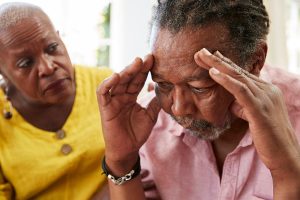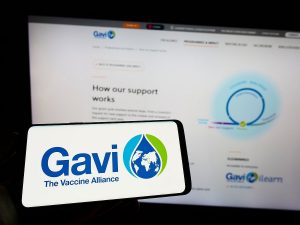(HealthDay News) – If you’re a rare case of someone who had an allergic reaction to your first dose of the Pfizer or Moderna COVID-19 vaccines, here’s reassuring news: It’s safe for you to get that necessary second dose.
That’s according to a team of allergists working at several U.S. hospitals. They examined second-dose vaccine reactions among patients who, after their first shot, had symptoms that appeared to be an allergic reaction.
The patients had sought care at centers such as Massachusetts General Hospital in Boston, Vanderbilt University Medical Center in Nashville, the University of Texas Southwestern Medical Center in Dallas, and the Yale School of Medicine in New Haven, Conn.
All had experienced some form of allergic reaction after their first shot of an mRNA-based COVID vaccine. Many reactions were mild, but in some cases the reaction involved anaphylaxis, a life-threatening, whole-body allergic reaction.
First-dose reactions “could include symptoms such as itching or hives or flushing,” explained co-lead author Dr. Matthew Krantz, of Vanderbilt University Medical Center. “The patients included were all advised by allergy specialists after their dose-one reaction.”
Among the 189 patients, 32 (17%) experienced full-blown anaphylaxis after their first dose of the vaccine.
The doctors found that 84% (159) of the patients did go on to receive their second dose of either the Pfizer or Moderna vaccine. That included 19 patients who had experienced anaphylaxis.
The main finding: Everyone tolerated the second dose, according to the study.
About 20% of the 159 patients reported immediate and potentially allergic symptoms associated with the second dose, with all symptoms being self-limited and mild.
In all of those cases, symptoms were easily resolved with the use of antihistamines alone.
Speaking in a Mass General news release, study co-senior author Dr. Kimberly Blumenthal said the fact that second dose reactions are typically mild suggests that reactions to the first dose are not “classic allergy” reactions.
“For classic allergy, re-exposure to the allergen causes the same or even worse symptoms,” noted Blumenthal, who is co-director of the Clinical Epidemiology Program within MGH’s Division of Rheumatology, Allergy and Immunology.
The new findings suggest it’s safe for most people to receive a second dose of the mRNA COVID-19 vaccine, added co-senior study author Dr. Aleena Banerji, clinical director of the Allergy and Clinical Immunology Unit at the Boston hospital.
However, “after first-dose reactions, allergy specialists may be useful to help guide risk/benefit assessments and assist with completion of safe vaccination,” Banerji added.
Dr. Blanka Kaplan works in the department of adult and pediatric allergy, asthma and clinical immunology at Northwell Health in Great Neck, N.Y. Reading over the new findings, she stressed that everyone, including people with allergies, need to get both doses of mRNA COVID vaccines, because it takes both doses to provide good protection against variants of SARS-CoV-2.
“It is impossible to overestimate the importance of completing vaccination to COVID-19 in the face of the global pandemic and the emerging variants,” Kaplan said. “These vaccines have unprecedented efficacy against the original COVID-19 virus.”
“People who receive both doses of Pfizer-BioNTech or Moderna vaccines remain much better protected against severe disease caused by COVID-19 variants, and are less likely to be hospitalized, compared to those who were not vaccinated at all or received only one dose of the vaccine,” she said. “It is very encouraging that it is safe to receive the second dose, even after having allergic symptoms with the first dose.”
She also said that anyone who had an allergic reaction to the first shot should go to their allergist for advice on getting the second.
“In our practice, we have opened a COVID-19 vaccination clinic, where people who experienced allergic symptoms after the first shot can receive their second dose under the supervision of an allergy specialist,” Kaplan noted, adding that, “To date, we have not had any severe reactions in our clinic.”
The allergists behind the new study also encouraged patients to complete their vaccination series.
The study was published July 26 in JAMA Internal Medicine.
More information
The Asthma and Allergy Foundation of America has more on allergies and COVID-19, including vaccination.
SOURCES: Blanka Kaplan, MD, adult and pediatric allergy, asthma and clinical immunology, Northwell Health, Great Neck, N.Y.; Massachusetts General Hospital, news release, July 26, 2021
Source: HealthDay
Copyright © 2025 HealthDay. All rights reserved.

















